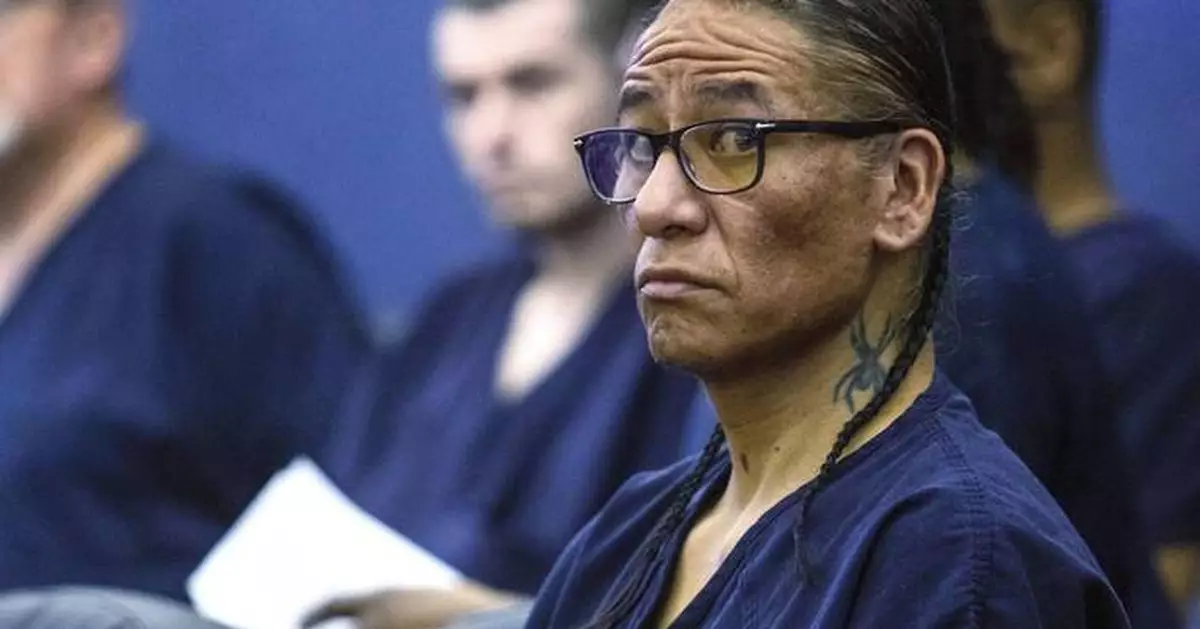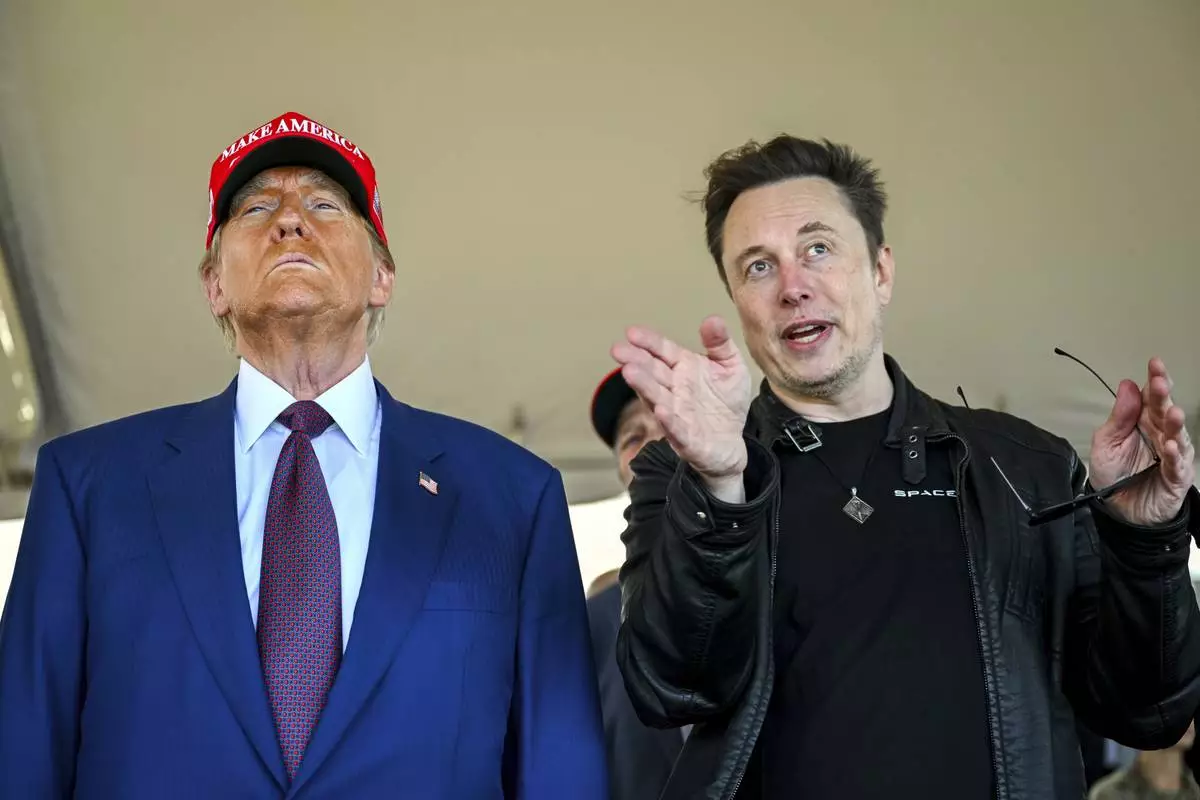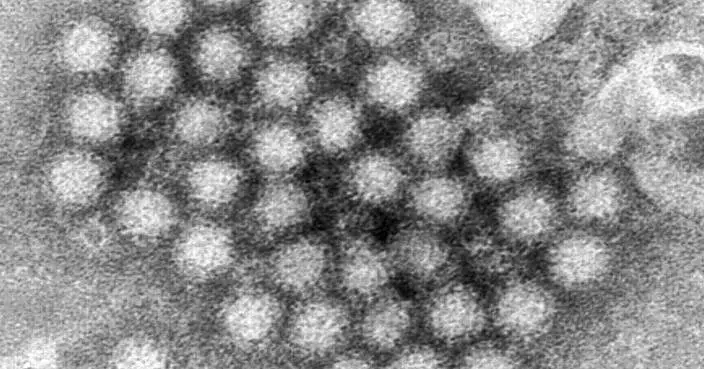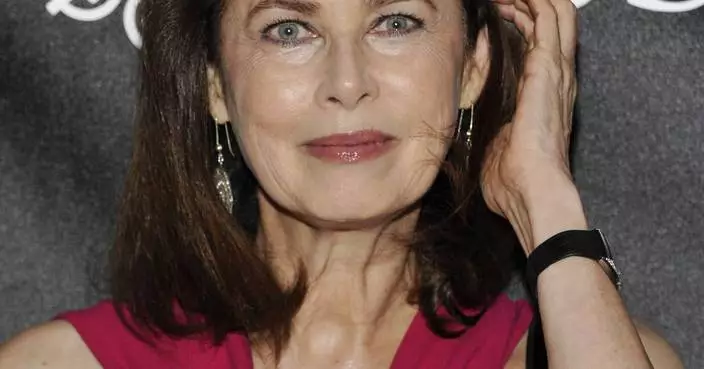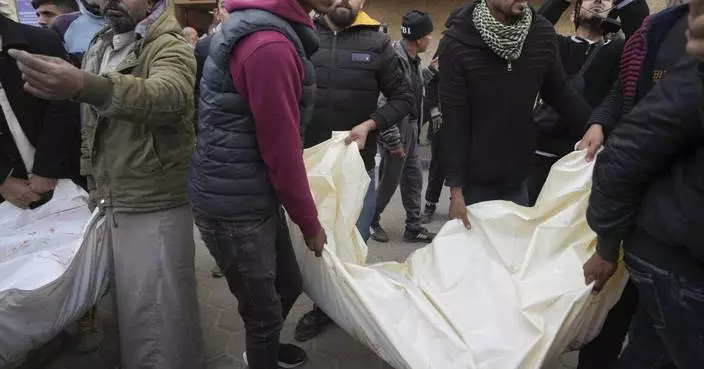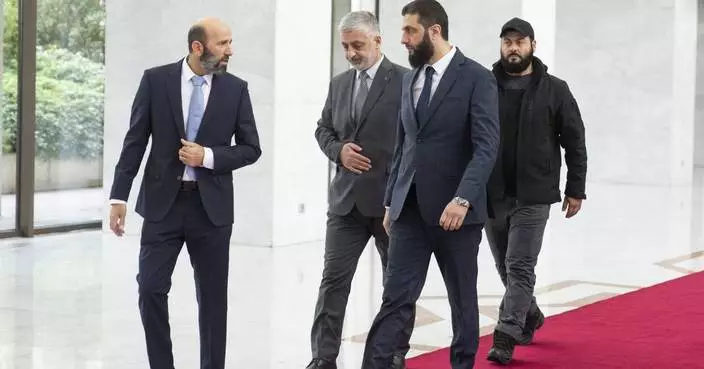LAS VEGAS (AP) — Former “Dances with Wolves” actor Nathan Chasing Horse is set to stand trial early next year in Las Vegas on charges that he sexually abused Indigenous women and girls, a significant development in the sweeping criminal case after more than a year of stalled court proceedings while he challenged it.
His trial in Clark County District Court is currently scheduled to begin on Jan. 13, court records show. He pleaded not guilty on Wednesday to 21 felonies, including sexual assault, kidnapping and producing and possessing videos of child sexual abuse, KLAS-TV in Las Vegas reported.
Prosecutors are now able to move forward with their case because Chasing Horse was again indicted last month following a Nevada Supreme Court decision that his original indictment be dismissed. The high court's order left open the possibility for the charges to be refiled, and prosecutors quickly took their case before another grand jury.
The high court said in its September order that prosecutors had abused the grand jury process when they provided a definition of grooming as evidence of Chasing Horse's alleged crimes without any expert testimony. But the justices also made clear in their ruling that their decision was not weighing in on Chasing Horse's guilt or innocence, saying the allegations against him are serious.
Best known for portraying the character Smiles A Lot in the 1990 movie “Dances with Wolves,” Chasing Horse was born on the Rosebud Reservation in South Dakota, which is home to the Sicangu Sioux, one of the seven tribes of the Lakota nation.
After starring in the Oscar-winning film, according to prosecutors, Chasing Horse began promoting himself as a self-proclaimed Lakota medicine man while traveling around North America to perform healing ceremonies.
Prosecutors said he used his authority to gain access to vulnerable women and girls for decades until his arrest in January near Las Vegas. He has been jailed ever since.
Chasing Horse's arrest reverberated around Indian Country as law enforcement in the U.S. and Canada quickly followed up with more criminal charges. In Montana, authorities there said his arrest helped corroborate long-standing allegations against him on the Fort Peck Indian Reservation. Tribal leaders banished Chasing Horse from the reservation in 2015 amid allegations of human trafficking.
His latest indictment in Las Vegas includes new allegations that Chasing Horse filmed himself having sex with one of his accusers when she was younger than 14. Prosecutors have said the footage, taken in 2010 or 2011, was found on cellphones in a locked safe inside the North Las Vegas home that Chasing Horse is said to have shared with five wives, including the girl in the videos.
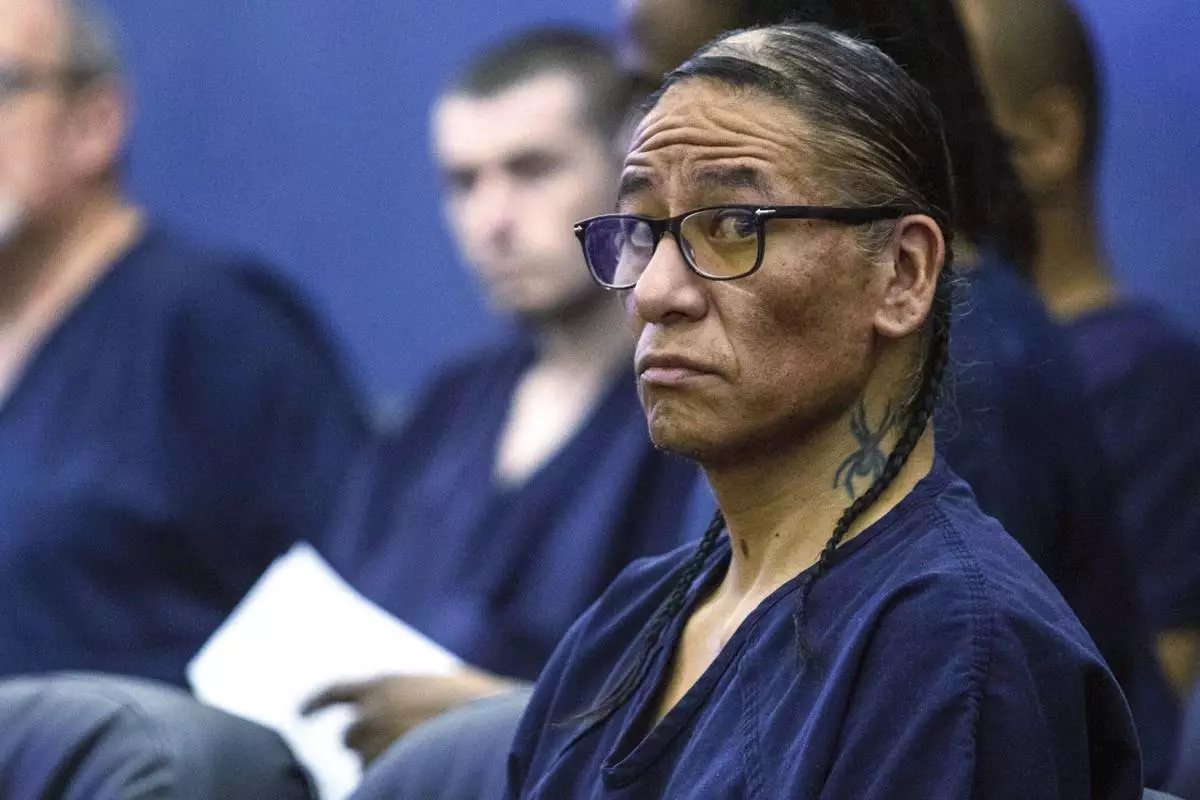
FILE - Nathan Chasing Horse sits in Las Vegas court, April 3, 2023. (AP Photo/Ty O'Neil, File)


